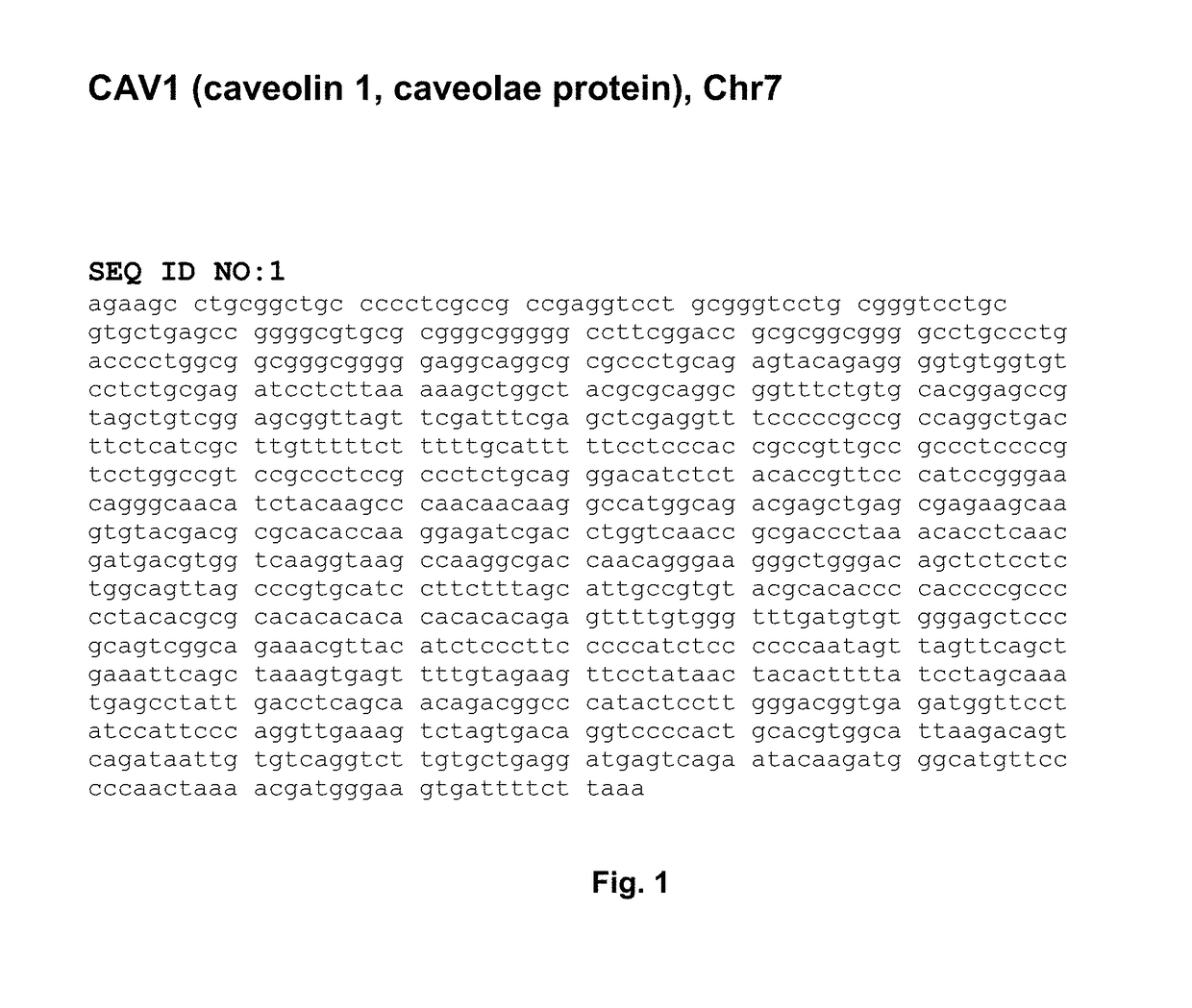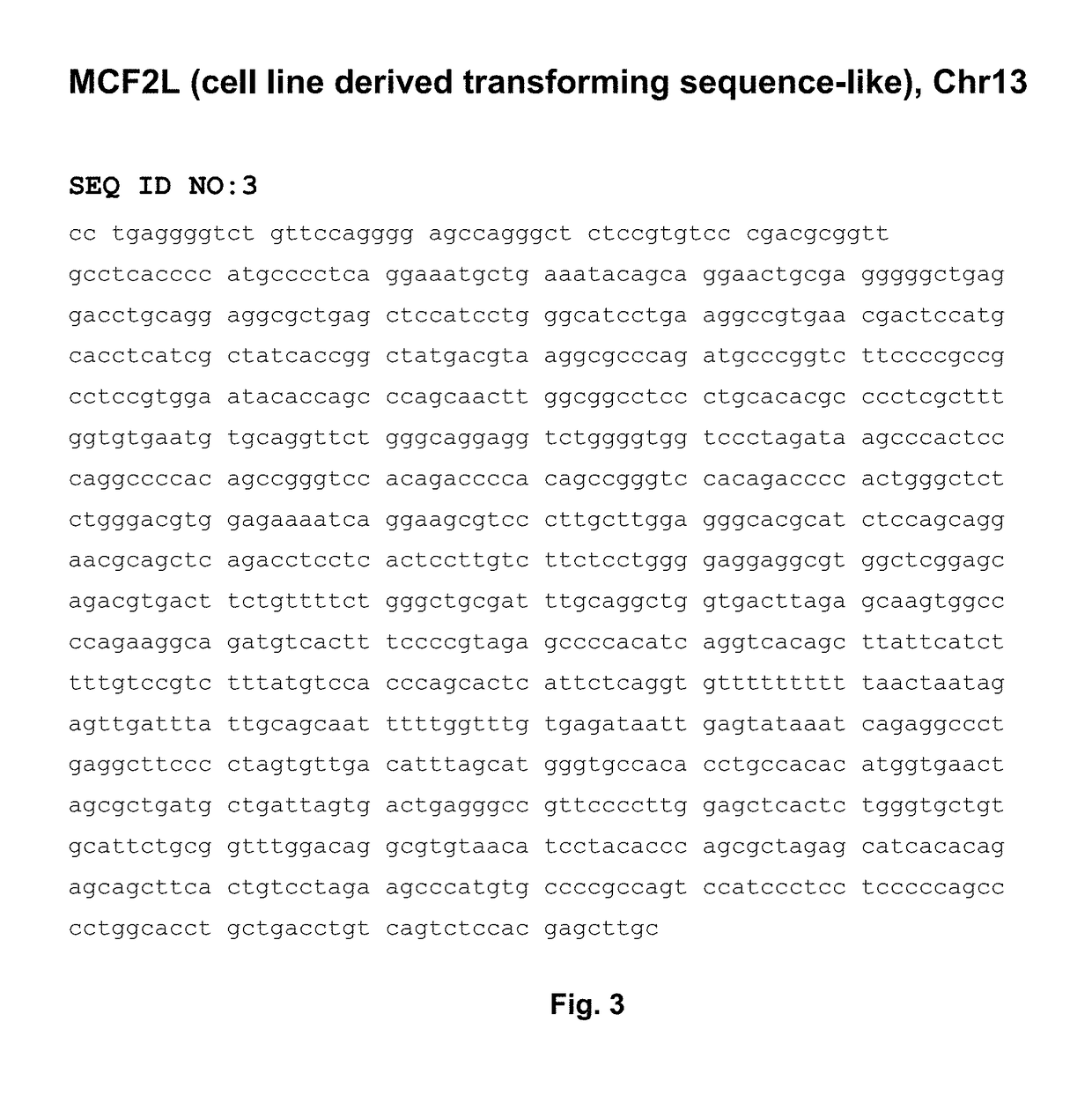Unbiased DNA methylation markers define an extensive field defect in histologically normal prostate tissues associated with prostate cancer: new biomarkers for men with prostate cancer
a prostate cancer and histologically normal technology, applied in the field of unbiased dna methylation markers, can solve the problems of infection, bleeding, and additional risks associated with anesthesia, and achieve the effect of improving the safety of patients and patients, reducing the risk of infection, and improving the quality of li
- Summary
- Abstract
- Description
- Claims
- Application Information
AI Technical Summary
Benefits of technology
Problems solved by technology
Method used
Image
Examples
example 1
[0102]Prostate cancer (PCa) is typically found as a multifocal disease suggesting the potential for molecular defects within the morphologically normal tissue. In Example 1, the inventors compared non-tumor associated (NTA) prostate to histologically indistinguishable tumor-associated (TA) prostate tissues and detected a distinct profile of DNA methylation alterations (0.2%) using genome-wide DNA arrays. Hypomethylation (87%) occurred more frequently than hypermethylation (13%). Analysis of TA tissues adjacent and distant from tumor foci revealed a persistence of this methylation defect. Further evaluation and validation of six loci distinguished TA from NTA patients. Still further evaluation and validation of two additional loci distinguished TA from NTA patients. The inventors found a subset of markers which were solely associated with the presence of high grade disease. These findings demonstrate a widespread methylation defect occurs in the peripheral prostate tissues of men wit...
example 2
Material and Methods
Tissue Samples
[0119]Samples termed non-tumor associated (NTA, mean 63, age range 55-81 years old) were obtained from organ donation or cystoprostatectomy. The presence of any associated PCa was ruled out by extensive histological evaluation. Tumor-associated (TA, mean 61, age range 57-64 years old) prostate tissues were obtained from patients who underwent radical prostatectomy for PCa (Table 5). This study was approved by the institutional review boards at the University Pittsburgh and the University of Wisconsin-Madison, A separate validation group of 14 NTA (mean 60, age range 55-70 years old) and 12 TA (mean 58, age range 53-64 years old) samples were also assessed.
TABLE 5Subject clinical and pathological characteristicsPyrosequencingMethylation ArrayT, TAA,NTATANTATATADNumber 54141126Age (yr)6361605958(55~81)(57~64)(55~70)(51~67)(44~69)Tumor6.35.127.1Volume (%)Gleason gradeIntermediate4616High10PathologicalstageT23T2a11T2b2T2c3614T3a112T3b4PSA (ng / ml)7.75.96...
example 3
CpG Islands
[0126]Based on the teachings of Examples 1 and 2, one can also check the CpG islands that are located in the promoter regions of the genes showing significant methylation changes correlating with PCa, preferably the region within about 5 kb upstream of the transcription start site (TSS), because the methylation of these CpG islands will change the gene expressions and affect gene functions. The inventors' primary research (data not shown) showed that one may wish to start with genes CAV1, EVX1, MCF2L and WNT2. The expanded regions of each of the six genes for preferred screening of methylation changes are detailed in FIGS. 14-19.
[0127]FGF1 and NCR2 do not have CpG islands within the promoter regions. For FGF1, the expanded regions for preferred screening of methylation changes would be 300 bps upstream and 1 kb downstream of the target region reported in Example 1, as well as about 5 Kb upstream of the translation start site ATG (detailed in FIG. 17). For NCR2 the expande...
PUM
 Login to View More
Login to View More Abstract
Description
Claims
Application Information
 Login to View More
Login to View More - R&D
- Intellectual Property
- Life Sciences
- Materials
- Tech Scout
- Unparalleled Data Quality
- Higher Quality Content
- 60% Fewer Hallucinations
Browse by: Latest US Patents, China's latest patents, Technical Efficacy Thesaurus, Application Domain, Technology Topic, Popular Technical Reports.
© 2025 PatSnap. All rights reserved.Legal|Privacy policy|Modern Slavery Act Transparency Statement|Sitemap|About US| Contact US: help@patsnap.com



